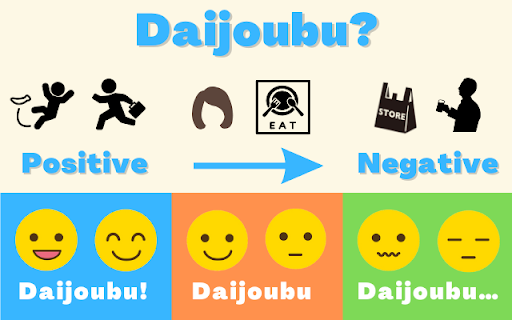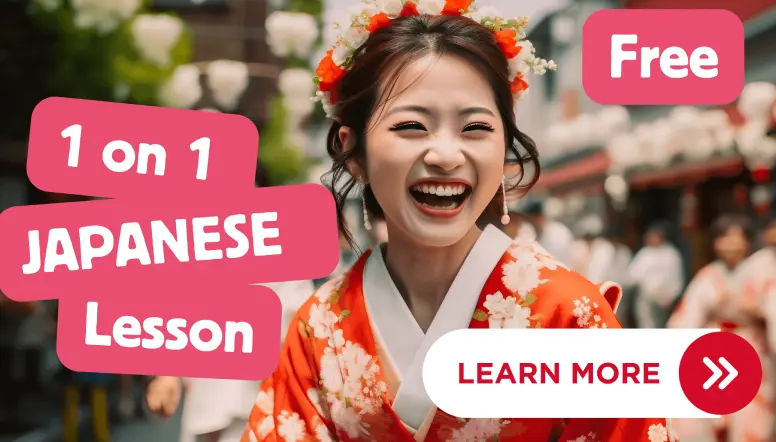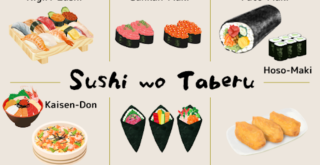
What Japanese do you know?
When you are just beginning to learn Japanese, you have to memorize a lot of words.
Konnichiwa
Itadakimasu
Kawaii
Arigato
These words are also important Japanese words for communication.
However, there are more useful words.
Words that are one word but can be used in various situations.
Here are some words and ways to use them: We recommend these words for beginners who wish to speak Japanese.
The word だいじょうぶ “Daijoubu”.
The word “daijoubu” can be used conveniently with various meanings.
In fact, “daijoubu” is a strange word that has both positive and negative meanings.
The pronunciation of “daijoubu” is not difficult even for foreigners, so it can be very useful once you learn the situations in which it is used.
If you know how to use this word, even beginners in Japanese should be able to speak like native speakers.
だいじょうぶ “Daijoubu” with a positive meaning
- When you fall or get injured
「大丈夫?」
「大丈夫」
「Daijoubu?」
「Daijoubu」
If nothing happened or if the injury was not serious.
- When you catch a cold and was absent from school.
「たいちょうは大丈夫?」
「大丈夫」
「Are you feeling daijoubu?」
「Daijoubu」
If you are not that sick and recovering.
- When you are busy at work.
「たいへんそうだけど大丈夫?」
「大丈夫」
「You look busy. Daijoubu?」
「Daijoubu」
If you can manage on your own.
- When confirming an appointment.
「あしたのよていは大丈夫?」
「大丈夫」
「Are you daijoubu for tomorrow’s appointment?」
「Daijoubu」
If you are going to be on schedule.
- When you are asked to do something
「これ、きょうじゅうにできる?」
「大丈夫」
「Can you finish this by tomorrow?」
「Daijoubu」
If you know you can do it or are confident about it.
Positive “daijoubu” is a common pharse in everyday life.
だいじょうぶ “Daijoubu” that has both a positive and negative meaning
- When asked for opinions on the food.
「Is it good?」
「Daijoubu」
- When asked about a new hairstyle or outfit.
「How’s my haircut?」
「Daijoubu」
One must be careful with the answer “Daijoubu” in this situation.
It can mean “good” in a positive way, but it can also mean “not good” at the same time.
だいじょうぶ “Daijoubu” with a negative meaning.
- When asked if you want a plastic bag at a convenience store.
「ふくろはいりますか?」
「大丈夫です」
「Do you need a plastic bag?」
「Daijoubu desu」
When you need one.
- When you want to decline an invitation.
「きょう、のみにいこうか?」
「大丈夫です」
「Do you want to go out for a drink?」
「Daijoubu desu」
When you don’t want to go.
Although the correct response would be “irimasen” or “ikimasen,” it is commonly used by Japanese who cannot say “no” directly and prefer to decline softly.
“Better get used to it than learn it.”
As the Japanese proverb says, practice makes perfect!
Let’s talk with people using “daijoubu” at Ohanashi Kagawa!








